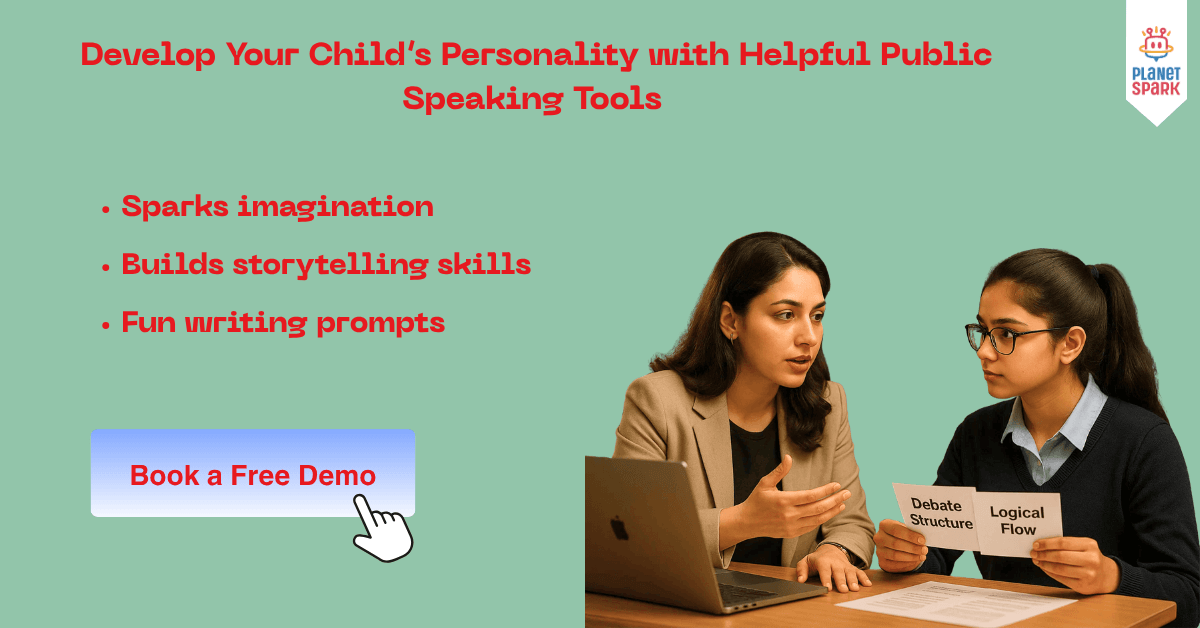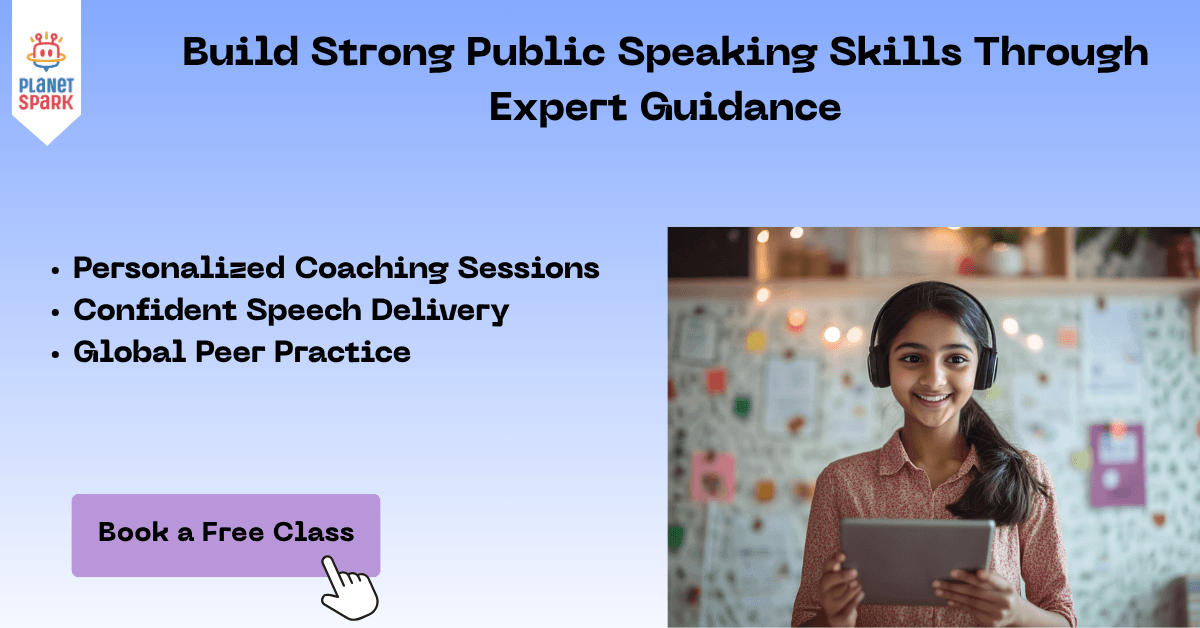Elaborative Rehearsal: Meaning, Example, Techniques to Remember

Table of Contents
- What is Elaborative Rehearsal?
- Maintenance Rehearsal vs. Elaborative Rehearsal
- How Does Elaborative Rehearsal Work?
- Example of Elaborative Rehearsal
- Elaborative Rehearsal Methods To Try
- When to Use Elaborative Rehearsal
- How Does Elaborative Rehearsal Help?
- Why Choose PlanetSpark to Master in Elaborative Rehearsal?
Elaborative rehearsal is a highly effective memory strategy in psychology, helping bridge the gap between simply remembering something for a short period and actually mastering information for a lifetime. In simple words, Elaborative rehearsal is learning by understanding. It is when you connect new information with what you already know, so it’s easier to remember. For example, if you want to remember that cats are mammals, you can think, “Cats give birth to babies and feed them milk, just like humans do.” This connection helps remember the sentence better than just memorising it.
This easy-to-understand guide will cover elaborative rehearsal in psychology, compare it with maintenance rehearsal, give practical examples, show how elaborative rehearsal works, and arm you with a variety of user-friendly methods you can use immediately.
What is Elaborative Rehearsal?
Elaborative rehearsal is a way of processing information so that you don’t just memorise it for a moment but remember it for years. The main idea is to take new information and actively connect it to things you already know or give it deeper meaning. For example, when you learn someone’s name, let’s say “Tara”, you might remember it by picturing the stars in the sky. This approach leverages the brain’s natural tendency to remember information that is meaningful, personal, or vividly connected to existing memories.
The idea behind this concept is that the more deeply you think about something, the better you remember it. This comes from the “levels of processing” theory. If you repeat words without thinking, there’s a chance or certainty that you will forget them soon. But if you connect the new information with a meaning, like linking it with your own experience or imagining examples, the brain stores it for a much longer time.

Maintenance Rehearsal vs. Elaborative Rehearsal
To really appreciate elucidative rehearsal, it’s helpful to distinguish it from maintenance rehearsal. Maintenance rehearsal is what most of us do by default. It is repeating a phone number over and over or reading a word list again and again, hoping it will stick. While maintenance rehearsal does hold facts in short-term memory, it rarely cements them into long-term recall.
Basis | Maintenance Rehearsal | Elaborative Rehearsal |
|---|---|---|
Meaning | Saying something again and again | Thinking deeply and making connections |
Helps In | Short-term memory - remembering for a little while | Long-term memory - remembering for a long time |
Example | Repeating a phone number to remember it | Linking a new word to a funny story or personal experience |
How deep you learn | Shallow or surface learning | Deep and meaningful learning |
Tenure in Long-term | Not usually | Yes, most of the time |
How Does Elaborative Rehearsal Work?
Elaborative Rehearsal is remembering things by adding meaning or connections to them. Instead of just repeating new information, you try to understand it and connect with something you know already to keep it in mind forever. This procedure helps the brain make strong memory connections and links.
How does it work?
1. Link new and old information- While learning a new word, make a sentence using that word that connects to your life. For example, if you learn the word courage, you can think of a time you were afraid.
2. Create pictures in mind: Imagine the new information or idea as a picture, a story, or a scene. This helps it easier to remember.
3. Ask “Why” and “How” questions: Understand why the idea is important or how it works in real life.
By doing all these, you create mental hooks. In simple words, little memory anchors in your brain that can help you recall information faster and more easily later on.
Transform Memory into Mastery — Start Your PlanetSpark Journey!
Example of Elaborative Rehearsal
Use Mnemonics
Mnemonics use patterns, phrases, songs, or sentences that encode a list of items or steps. For the planets in our solar system, Mercury, Venus, Earth, Mars, Jupiter, Saturn, Uranus, Neptune, you might create the sentence like “My Very Educated Mother Just Served Us Noodles.” Each word’s first letter matches a planet.
Personal Stories
When trying to remember the definition of "hypocrisy", you can invent a story where your friend Varun claims to love hippos but actually dislikes them. By connecting “Varun” (your friend) and “hippo” (the animal), you reinforce the meaning of hypocrisy as pretending to hold beliefs you don’t actually have.
Making Real-life Connections
If you’re learning about supply and demand, relate the theory to how prices change during holiday shopping in your own experience.
Teaching Others
Explaining a new concept out loud to a student or a friend, or even an imaginary student, solidifies what you know and exposes any gaps.
Visual Association
When studying languages, pair a new foreign word with a vivid image, for example, pair the Spanish word “perro” with a mental picture of a playful dog in the park.
Elaborative Rehearsal Methods To Try
- Meaningful Repetition
Go beyond rote repetition. After reviewing facts, try to relate them to something meaningful in your life. - Linking Examples
Pair new information with familiar scenarios. Connect biological facts to personal experiences with nature, or relate historical dates to family stories. - Visualisation
Draw diagrams, create mind maps, and picture concepts in your mind. Use colour, imagery, or concept charts to see how ideas fit together. - Mnemonics and Acronyms
Create catchy sentences, rhymes, or acronyms that encode information in memorable ways. - Personalisation
Blend information with your hobbies, job, or lived experiences to create unique associations. - Teaching and Discussing
Talk about what you’re learning with others or even an imaginary audience. Teaching tests your recall and builds your mental network. - Applying and Practising
Use new information in real-world situations. Write essays, solve real problems, or act out concepts through role-play.
When to Use Elaborative Rehearsal
- Studying for exams or tests: Relating tough facts to real-life situations or familiar ideas aids memory retention and understanding.
- Learning new skills or languages: Visual associations and stories help cement details in long-term memory.
- Meeting new people: Associating names with their body features, occupations, or hobbies enables easier recall in social interactions.
- Remembering instructions, lists, or speeches: Techniques like mind mapping and mnemonics keep information organised and accessible.

How Does Elaborative Rehearsal Help?
- Long-lasting memory: Effective in transferring data from short-term storage into long-term recall.
- In-depth learning: Encourages you to understand things, not just memorise.
- Flexible applications: From self-employed, students, to parents remembering grocery lists, everyone can benefit.
- Cognitive resilience: Builds mental resilience for people with memory challenges, learning disabilities, or even early dementia.
Why Choose PlanetSpark to Master in Elaborative Rehearsal?
- 1:1 Coaching from Experts- Every child at PlanetSpark gets personal attention from certified and industry-expert trainers for public speaking. They guide the students to use the right technique or procedure to remember a particular thing, topic, or sentence with exciting tips and tricks so that they remember it for their entire life. This makes them feel confident and natural.
- Wide Curriculum- At Planetspark, the students not only memorise things, but they also deeply understand them. With the help of elaborative rehearsal techniques, they connect new ideas with real-life examples, stories, and visuals. These things help them to remember for a longer period of time, think smarter, and apply knowledge confidently in any situation.
- TED-style Training Modules- Students at PlanetSpark practice delivering powerful speeches like TEDx speakers by using the “hook, message, story, call to action” model.
- Practice with Global Leaders- The students are given a chance to speak with peers from over 13 countries through group discussion, sessions of storytelling, debating, etc. This practice helps them to apply the knowledge and technique of elaborative rehearsal to remember things from the sessions.
- Public Speaking Competition- PlanetSpark regularly organises speaking competitions and public speaking leagues at the national level, where students apply what they’ve learned through elaborative techniques. These platforms help kids apply their learning of public speaking more confidently, as they can now remember things better.
- Video-based learning- Students are shown audio and visuals to help them memorise a thing or a concept for a longer period of time in their minds.
Conclusion: Mastering the Technique of Elaborative Rehearsal with PlanetSpark
At PlanetSpark, we believe that learning goes beyond memorising; it's about understanding, connecting, and applying knowledge meaningfully in every place. With the help of elaborative rehearsal techniques, the student not only studies facts but also builds a lifelong habit to remember them and link ideas to real-life experiences, stories, and visuals. With expert mentorship, global exposure, and interactive practice, PlanetSpark helps every learner to think deeply, remember things longer, and express smartly.
Frequently Asked Questions
Elaborative rehearsal is basically thinking about the meaning of new information and then linking it with what you already know. This strategy helps in moving the information deep into the long-term memory. By creating connections and personal meanings, it becomes easier to understand and remember than just repeating it again and again.
Elaborative rehearsal can be used when you want to remember something for a very long period of time. Examples include studying for exams, learning new skills, new languages, remembering names or some facts, or when understanding matters more than remembering.
Elaborative rehearsal is great for long-term memory of meaningful info, but it sometimes may not help much in the case of memorising random strings of digits. Also, it requires time and effort to create the connections.
Elaborative rehearsal can be used by creating visual images, making personal connections, or organising concepts in a personalised way.
Elaborative rehearsal helps in deep learning and long-term memory retention. Instead of just memorising facts, it helps you truly understand a specific topic and apply it in real situations.
Students can relate this technique to remember any topic for a long period of time. They can relate new topics to real-life examples; ask how and why questions; make mind maps or diagrams, discuss topics with friends or teachers, etc.
Personalized Communication Report
Record a video to get a AI generated personalized communication report for your child

Hi There, want to try these
tips for your child with
LIVE with our expert coach?
Let's check your child's
English fluency
